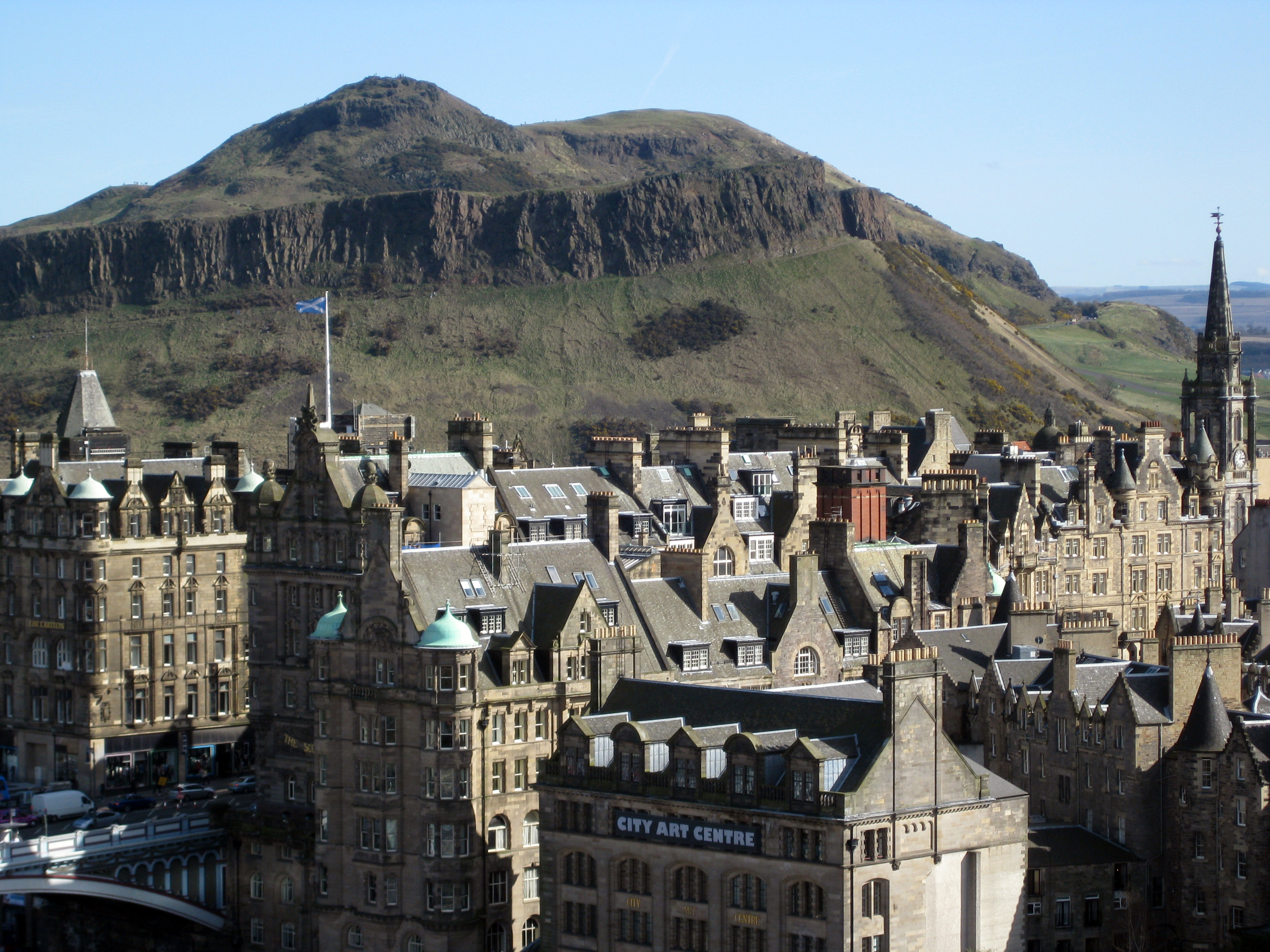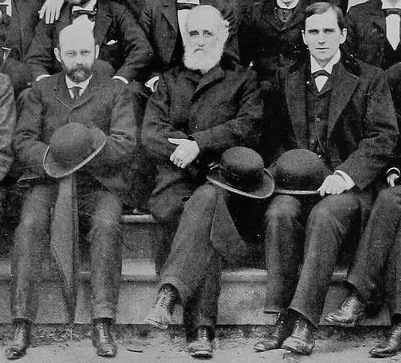|
Edinburgh Theological Seminary
Edinburgh Theological Seminary, formerly known as the Free Church College, is a theological seminary in Edinburgh connected to the Free Church of Scotland. It traces its origins back to the foundation of New College, Edinburgh at the time of the Disruption of 1843. At the formation of the United Free Church, the United Free Church was granted the New College buildings, and so the continuing Free Church moved to new premises in 1907. It acquired its present name in 2014. Edinburgh Theological Seminary offers Bachelor of Theology and a variety of Master of Theology degree programmes, which are validated by the University of Glasgow. Notable faculty *William Menzies Alexander *G. N. M. Collins *Allan Harman Allan Macdonald Harman, (born 7 June 1936)Douglas J. W. Milne (ed.), ''Israel and the Church: Essays in Honour of Allan Macdonald Harman'' (2001). is an Australian Presbyterian theologian and Old Testament scholar. He has been described as a " ... * Donald Maclean * Do ... [...More Info...] [...Related Items...] OR: [Wikipedia] [Google] [Baidu] |
Edinburgh
Edinburgh ( ; gd, D├╣n ├łideann ) is the capital city of Scotland and one of its 32 Council areas of Scotland, council areas. Historically part of the county of Midlothian (interchangeably Edinburghshire before 1921), it is located in Lothian on the southern shore of the Firth of Forth. Edinburgh is Scotland's List of towns and cities in Scotland by population, second-most populous city, after Glasgow, and the List of cities in the United Kingdom, seventh-most populous city in the United Kingdom. Recognised as the capital of Scotland since at least the 15th century, Edinburgh is the seat of the Scottish Government, the Scottish Parliament and the Courts of Scotland, highest courts in Scotland. The city's Holyrood Palace, Palace of Holyroodhouse is the official residence of the Monarchy of the United Kingdom, British monarchy in Scotland. The city has long been a centre of education, particularly in the fields of medicine, Scots law, Scottish law, literature, philosophy, the sc ... [...More Info...] [...Related Items...] OR: [Wikipedia] [Google] [Baidu] |
Donald Macleod (theologian)
Donald Macleod (born 24 November 1940) is a Scottish theologian. Early life Born in 1940 in Ness, Lewis, Macleod was educated at the University of Glasgow and the Free Church College before being ordained as a minister of the Free Church of Scotland in 1964.Biography Career Choosing an academic career, he was appointed as professor of at the Free Church College in 1978, a position he held for some 33 years. In 1996, he was considering leaving the Free Church to join the Church of Scotland, and following a new career as a writer and journalist, but remained in post and in 1999 was elected as principal of the Free Church College. He retired f ...[...More Info...] [...Related Items...] OR: [Wikipedia] [Google] [Baidu] |
Education In Edinburgh
Edinburgh ( ; gd, D├╣n ├łideann ) is the capital city of Scotland and one of its 32 council areas. Historically part of the county of Midlothian (interchangeably Edinburghshire before 1921), it is located in Lothian on the southern shore of the Firth of Forth. Edinburgh is Scotland's second-most populous city, after Glasgow, and the seventh-most populous city in the United Kingdom. Recognised as the capital of Scotland since at least the 15th century, Edinburgh is the seat of the Scottish Government, the Scottish Parliament and the highest courts in Scotland. The city's Palace of Holyroodhouse is the official residence of the British monarchy in Scotland. The city has long been a centre of education, particularly in the fields of medicine, Scottish law, literature, philosophy, the sciences, and engineering. It is the second-largest financial centre in the United Kingdom, and the city's historical and cultural attractions have made it the UK's second-most visited tourist d ... [...More Info...] [...Related Items...] OR: [Wikipedia] [Google] [Baidu] |
1843 Establishments In Scotland
Events JanuaryŌĆōMarch * January ** Serial publication of Charles Dickens's novel ''Martin Chuzzlewit'' begins in London; in the July chapters, he lands his hero in the United States. ** Edgar Allan Poe's short story "The Tell-Tale Heart" is published in a Boston magazine. ** The Quaker magazine ''The Friend (Quaker), The Friend'' is first published in London. * January 3 ŌĆō The ''Illustrated Treatise on the Maritime Kingdoms'' (µĄĘÕ£ŗÕ£¢Õ┐Ś, ''HŪÄigu├│ T├║zh├¼'') compiled by Wei Yuan and others, the first significant Chinese work on the West, is published in China. * January 6 ŌĆō Antarctic explorer James Clark Ross discovers Snow Hill Island. * January 20 ŌĆō Hon├│rio Hermeto Carneiro Le├Żo, Marquis of Paran├Ī, becomes ''de facto'' first Prime Minister of Brazil, prime minister of the Empire of Brazil. * February ŌĆō Shaikh Ali bin Khalifa Al-Khalifa captures the fort and town of Riffa after the rival branch of the family fails to gain control of the Riffa Fort and flees t ... [...More Info...] [...Related Items...] OR: [Wikipedia] [Google] [Baidu] |
Presbyterianism In Scotland
Presbyterianism is a part of the Reformed tradition within Protestantism that broke from the Roman Catholic Church in Scotland by John Knox, who was a priest at St. Giles Cathedral (Church of Scotland). Presbyterian churches derive their name from the presbyterian form of church government by representative assemblies of elders. Many Reformed churches are organised this way, but the word ''Presbyterian'', when capitalized, is often applied to churches that trace their roots to the Church of Scotland or to English Dissenter groups that formed during the English Civil War. Presbyterian theology typically emphasizes the sovereignty of God, the authority of the Scriptures, and the necessity of grace through faith in Christ. Presbyterian church government was ensured in Scotland by the Acts of Union in 1707, which created the Kingdom of Great Britain. In fact, most Presbyterians found in England can trace a Scottish connection, and the Presbyterian denomination was also taken ... [...More Info...] [...Related Items...] OR: [Wikipedia] [Google] [Baidu] |
Bible Colleges, Seminaries And Theological Colleges In Scotland
The Bible (from Koine Greek , , 'the books') is a collection of religious texts or scriptures that are held to be sacred in Christianity, Judaism, Samaritanism, and many other religions. The Bible is an anthologya compilation of texts of a variety of forms originally written in Hebrew, Aramaic, and Koine Greek. These texts include instructions, stories, poetry, and prophecies, among other genres. The collection of materials that are accepted as part of the Bible by a particular religious tradition or community is called a biblical canon. Believers in the Bible generally consider it to be a product of divine inspiration, but the way they understand what that means and interpret the text can vary. The religious texts were compiled by different religious communities into various official collections. The earliest contained the first five books of the Bible. It is called the Torah in Hebrew and the Pentateuch (meaning ''five books'') in Greek; the second oldest part was a colle ... [...More Info...] [...Related Items...] OR: [Wikipedia] [Google] [Baidu] |
Educational Institutions Established In 1843
Education is a purposeful activity directed at achieving certain aims, such as transmitting knowledge or fostering skills and character traits. These aims may include the development of understanding, rationality, kindness, and honesty. Various researchers emphasize the role of critical thinking in order to distinguish education from indoctrination. Some theorists require that education results in an improvement of the student while others prefer a value-neutral definition of the term. In a slightly different sense, education may also refer, not to the process, but to the product of this process: the mental states and dispositions possessed by educated people. Education originated as the transmission of cultural heritage from one generation to the next. Today, educational goals increasingly encompass new ideas such as the liberation of learners, skills needed for modern society, empathy, and complex vocational skills. Types of education are commonly divided into formal, ... [...More Info...] [...Related Items...] OR: [Wikipedia] [Google] [Baidu] |
Maurice Roberts (minister)
Maurice Jonathan Roberts (born 1938) is an English Presbyterian minister. Roberts was born in Chester and studied at Durham University and the Edinburgh Theological Seminary, Free Church College. He was minister of Ayr Free Church from 1974 to 1994 and then at Greyfriars, Inverness until his retirement in 2010. Roberts was instrumental in the formation of the Free Church of Scotland (Continuing) in 2000. He had been chairman of the Free Church Defence Association, which objected to the way the Free Church of Scotland (since 1900), Free Church of Scotland had failed to discipline Professor Donald Macleod (theologian), Donald Macleod. Roberts was suspended for contumacy in June 1999 for refusing to withdraw his claim that the General Assembly in May of that year was characterised by "gross and irremediable wickedness and hypocrisy". More ministers were suspended the following year, and responded by leaving the Free Church and forming the Free Church (Continuing). Roberts served as M ... [...More Info...] [...Related Items...] OR: [Wikipedia] [Google] [Baidu] |
Richard McIlwaine (educator)
Richard McIlwaine (May 18, 1835 ŌĆō August 9, 1913) was the eleventh President of HampdenŌĆōSydney College, serving from 1883 to 1904. Early life Richard McIlWaine was born in Petersburg, Virginia, of Scotch Irish descent. His father, Archibald Graham McIlwaine, was a mogul in flaxseed brokerage. He attended HampdenŌĆōSydney College alongside his brothers, J. Finley McIlwaine (graduating in 1858 and a trustee from 1866 to 1870) and Archibald Graham McIlwaine Jr. (graduating in 1865). He was an 1853 alumnus of the college at the age of 19. Their father was a major benefactor to the college, donating $5000 in 1859 ($142,857 in 2014 dollars), "the largest single cash gift to the College to that date and for over thirty years after". He then went on to study at the University of Virginia, where, in 1855, he was a founding brother of Beta Theta Pi. He also studied at the Union Theological Seminary and the Free Church College of Edinburgh, Scotland. He was licensed by the East Han ... [...More Info...] [...Related Items...] OR: [Wikipedia] [Google] [Baidu] |
Jack Glass
John Thomas Atkinson Glass (8 September 1936 ŌĆō 24 February 2004), often known as Pastor Jack Glass or simply as Jack Glass, was a Scottish Protestant preacher, evangelist and political activist. Glass is most readily associated with his strong views on unionism in Northern Ireland, his anti-Catholic speeches and his association with his friend and colleague Ian Paisley. According to his obituary in ''The Times'', Glass was seen as Scotland's answer to Ian Paisley. Early life Jack Glass was born in Dalmarnock, Glasgow, on 8 September 1936. His father, Samuel, was a brushmaker and Church of Scotland elder, while his mother, Isabella, was a housewife. He was the dux of his local Springfield school, which gave him an automatic scholarship to the local authority maintained but fee-paying Allan Glen's School in Glasgow. He turned the scholarship down because he did not want to be separated from his local friends. He attended Riverside Senior Secondary instead. Glass was "born ag ... [...More Info...] [...Related Items...] OR: [Wikipedia] [Google] [Baidu] |
Donald Maclean (principal)
Donald Maclean (1869ŌĆō1943) was principal of the Free Church College in Edinburgh. He was appointed Professor of Church History and Church Principles in 1920, and principal in 1942, but died the following year. He also co-founded ''The Evangelical Quarterly''.F.F. Bruce Frederick Fyvie Bruce (12 October 1910 ŌĆō 11 September 1990), usually cited as F. F. Bruce, was a Scottish biblical scholar who supported the historical reliability of the New Testament. His first book, ''New Testament Documents: Are They ..., ŌThe Tyndale Fellowship For Biblical Research,ŌĆØ ''The Evangelical Quarterly'' 19.1 (Jan. 1947): 52ŌĆō61. References Scottish Christian theologians 1869 births 1943 deaths Presidents of Calvinist and Reformed seminaries 20th-century Ministers of the Free Church of Scotland {{Scotland-reli-bio-stub ... [...More Info...] [...Related Items...] OR: [Wikipedia] [Google] [Baidu] |




.jpg)

